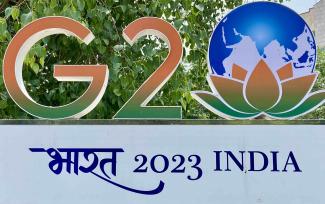Digital Public Infrastructure and the G20: A Framework for Global Governance
The recently concluded G20 summit under India’s presidency had many positives. One amongst them is the 'G20 Framework for Systems of Digital Public Infrastructure'. The G20 New Delhi Leaders' Declaration backed the 'G20 Framework for Systems of Digital Public Infrastructure (DPI)', a voluntary and suggested framework for the development, deployment and governance of DPI. Heads of G20 states have recognised the role of DPI in delivering services at a societal scale and underlined the commitment to work together to promote cooperation on international governance for Artificial Intelligence (AI). Before the New Delhi Declaration was clinched, some scepticism about the changes of any jointness emerged. People were talking about it from the experience of Bali last year. Obviously, the ongoing Ukraine conflict issue would be a dealbreaker since the G20 grouping consists of the warring factions: NATO members and Russia (with friend China). However, India’s G20 Sherpa and his team succeeded in pulling a rabbit out of the hat! It looks like what team Sherpa concentrated on was to push for positives and argue for focusing on the issues that could make life better in the present and the future for the entire world. DPI was one such push.
It is a tremendous achievement for India. Here is a state belonging to the global South, now showing the way to the developed nations regarding how society at large could benefit from digitisation.
Indian ideas on DPI were taken seriously by G20 members because they knew that for decades, India has been known as a powerhouse for software development. Today, major global IT companies are headed by people of Indian origin. It is the Indians who are working in developed nations in IT industries and pushing major projects in a range of sectors, from banking to education to defence. More importantly, in recent times, India has achieved all three of the ‘foundational’ DPIs: real-time fast payment (the UPI), digital identity (Aadhaar), and a platform for sharing personal data safely without compromising privacy. Naturally, they knew that when India was pushing "to build and maintain a Global Digital Public Infrastructure Repository (GDPIR), a virtual repository of DPI," India was serious and speaking out of the experience. Obviously, India has much to offer in this field to G20 members.
India went through the process of demonetisation in 2016. There are various views concerning the success of this policy. However, one clear advantage emerged out of this process, and that is digital payments. India has successfully developed a robust digital public goods infrastructure for some time. Initiatives like UPI (Unified Payments Interface), Jan Dhan, and Aadhar have succeeded. Initiatives like the Open Network for Digital Commerce (ONDC) have revolutionised India’s digital commerce ecosystem. Thanks to CoWin (Covid Vaccine Intelligence Network), India successfully managed the COVID-19 vaccination process. The world was already in awe because of the success of such initiatives. The credit show also goes to common Indians, who quickly adapted to various digital platforms and contributed much towards making different ideas successful.
The Declaration also welcomed India's plan to build and maintain a Global Digital Public Infrastructure Repository (GDPIR), a virtual repository of DPI voluntarily shared by G20 members and beyond. The world leaders were also impressed by the Indian Presidency's proposal of the One Future Alliance (OFA), a voluntary initiative to build capacity and provide technical assistance and adequate funding support for implementing DPI in LMICs (low- and middle-income countries). India proposes to have a digital public infrastructure interoperable. This is because everyone understands the importance of data-free flow with trust and cross-border data flows while respecting applicable legal frameworks. The push for data is for a reason: data is important for developmental models. India believes technology can enable rapid transformations to bridge existing digital divides and accelerate inclusive and sustainable development progress. The G20 members were impressed with the Indian Presidency's proposal of the One Future Alliance (OFA), a voluntary initiative to build capacity and provide technical assistance and adequate funding support for implementing DPI in LMICs (low- and middle-income countries).
Sometime back under India’s Presidency, G20 Digital Economy Ministers had reached a groundbreaking consensus on how to effectively shape the digital public infrastructure (DPI) of the future as an accelerator of the Sustainable Development Goals (SDGs). The United Nations Development Programme (UNDP) with the World Bank collaborated with the Government of India as its knowledge partner on DPI in the Digital Economy Working Group.
Now, in days to come, India would be required to be very proactive to push for the implementation of this idea. DPI is all about data. Agreeing for data sharing voluntarily at conclaves like G20 is one thing, and starting the data-sharing process is another. It is known that for the 21st century, ‘data is new oil’. Data has economic, commercial, technological and security connotations. In addition, there are issues like intellectual property rights (IPR) and cyber security. India has already spoken about responsibly harnessing AI (artificial intelligence) for good and all. The declaration talks about the rapid progress of AI and how that promises prosperity and expansion of the global digital economy. Again, AI is data intensive, and the technology is still finding its feet. It would not be advisable to depend on AI. Coincidentally, technical expertise is available for India, and a vibrant DPI is in place. What is required now is to build digital bridges with G20 (now G21) member states and make this idea successful. The efforts towards building a resilient digital ecosystem would lead India towards having a digital footprint on the world.
Note: The article is based on reports available on the internet.
